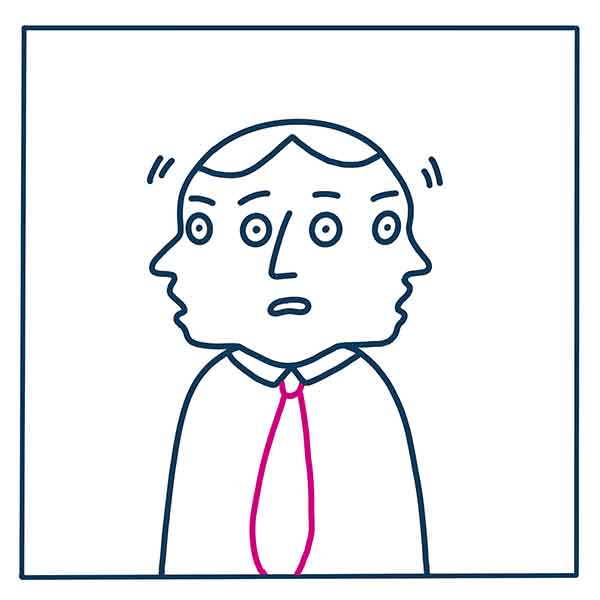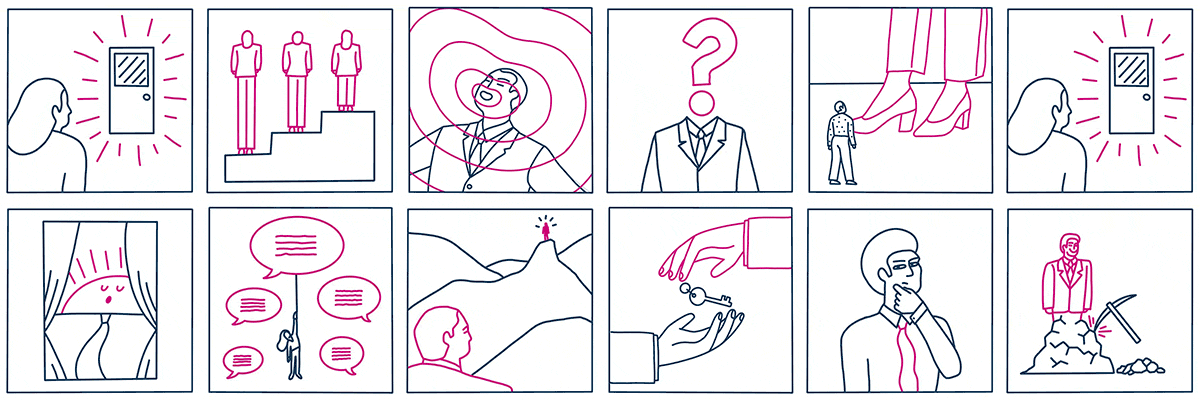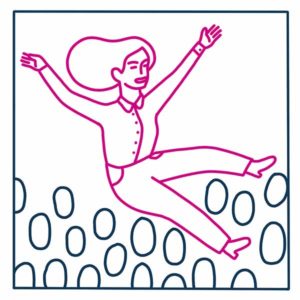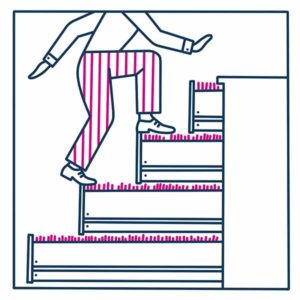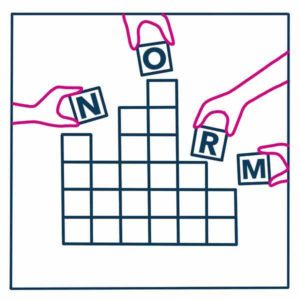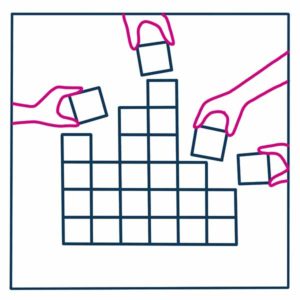Decisions, decisions, decisions…
You make them all day, every day. So why are some so much harder to make than others? Why are you sometimes just unable to make a decision?
Can you answer these questions? If not, you need knowledge.
You need to know what makes decisions hard. That way you’ll know what to do when you can’t make one.
It’s all about being prepared.
You must understand why you’re struggling to make a decision. Only then can you take action.
If a decision feels hard to make, it could be because…
…the decision is hard to reverse: the more final the decision is or feels and the harder it is to turn back the clock
…the consequences are severe: if making a wrong decision would lead to catastrophic consequences, real or imagined
…the consequences are wide-ranging: if the consequences affect multiple people in multiple locations or you don’t quite know what the consequences will be
…you lack expertise: if you feel you’re having to make a decision that is beyond your abilities because you don’t know enough about the topic.
…your confidence is shot: if you’re feeling particularly under confident in your abilities, for example if you’ve recently experienced a setback.
…your position feels threatened: if you’ve had a glowing report from your boss, you feel empowered to make decisions. If you’ve just had a run-in, you’ll feel extra pressure and and the threat of further confrontation
…you’ve never made the decision before: the less experienced you are in a domain, the more certainty you need to confidently make decisions. The more experience you have, the more you accept risk. New decisions can be terrifying.
Once you’ve identified the blocker, you need to either push through or defer the decision. How do you choose which route to take?
When you defer a decision with a plan of action, these are the steps you need to take:
Question 1: Is there a genuine reason to defer the decision?
This is an important question, although it seems obvious. Look at the list above and pinpoint your reason for not wanting to make the decision.
These are all valid reasons for not wanting to make a decision. But they’re not all valid for deferring the decision.
The litmus test is this: are you capable of making a good decision today? If you are, then it may be best to just make the decision (but see question two).
But if you would make a better decision tomorrow – for example because you lack key information – then deferring the decision starts to make sense.
Question 2: What are the benefits and risks of deferring the decision?
Is it now or never? Is it better to make an imperfect decision now than a more perfect one later? Could you delay a week and experience no ill effects?
It’s not black or white – if you want to delay by a week but the risks are too high, can you delay by three days? A day? Does that buy you the time you need?
You’re always looking for the best compromise in these situations.
You’re balancing out your personal ability to make a good decision with the consequences of not making the decision right now.
Question 3: Have you got a clear route to making the decision?
In question one you identified your blocker. In question two you realised the benefits of deferring the decision outweighed the risks.
Now you need to know how you’ll overcome your blocker.
Do you feel like you don’t have the domain knowledge to make a decision? Or do you feel frazzled from your day and incapable of bringing to mind the knowledge you need?
One requires you to learn quickly. The other requires a good night’s sleep.
Sometimes what you think will help you make the decision will not. Say you’re waiting on a trusted advisor to finish annual leave so you can canvass their opinion.
They come back. You take them to one side. And they tell you exactly the opposite of what you want to hear.
Won’t the decision now be harder?
This is a key lesson in decision-making: more is not always best. More opinions. More knowledge. More time.
Sometimes there’s no clear blocker, but it doesn’t feel right. Understanding these ‘silent blockers’ is important.
Blocker 1: You’ll second guess your intuition – just because it’s your intuition
As a society, we’re taught to reject decisions that aren’t based on data.
For some reason we exclude intuition from the definition of data, even though it’s the oldest form of data we have.
You need to warm to your intuition: it’s designed to help you, not lead you astray.
Blocker 2: You’ll get stuck if you don’t know whether to ‘exploit’ or ‘explore’
Should you go with something you know and get a result close to what you expect (exploit) or trying something new and potentially get a better result (explore)?
Do you go to your favourite restaurant or try the new one?
When we feel scared or frazzled, we’re more likely to exploit. When we feel free and open to new experiences, we’re more likely to explore.
Think about how your mindset and physiology might influence which state you’re in.
Perhaps more importantly, think about what state you need to be in to make a decision?
And consider that if someone’s asking you to make an ‘explore’ decision in a domain that’s new to you, this might explain why you’re struggling to make the decision.
Blocker 3: You’ll focus on the right decision, not making the decision right
No decision is 100% perfect. There are always negative consequences.
And often we don’t know the consequences, especially with long-term decisions.
A good decision does not make success inevitable. It’s the first decision in a long series of decisions that may lead to success.
If you can justify the decision and your execution of the decision is grounded in reality and good practice, you can sleep easy.
Because ultimately every decision is the beginning of the journey, not the end.
And what you do after the decision has been made is arguably more important than the decision itself.
Headspace is a key universal factor to making better decisions. Don’t ignore it – improve your headspace at work today.
- 75+ articles for you to read.
- UK workplace reports on:
- Mental Health & Stress at work.
- Gender Discrimination & A.I.
- Video interviews with experts.
- FREE use of Jumpstart platform

